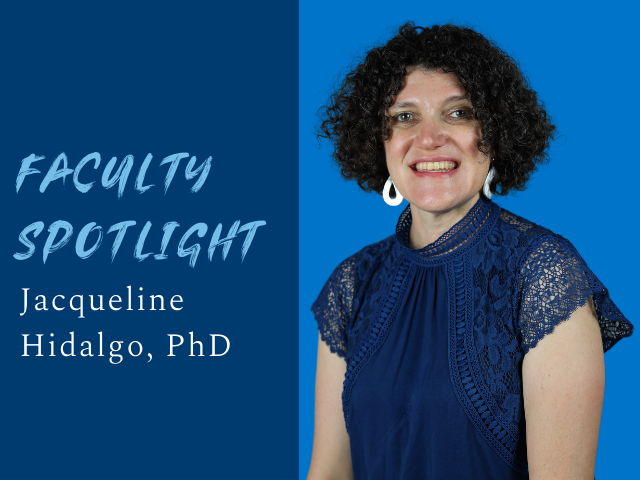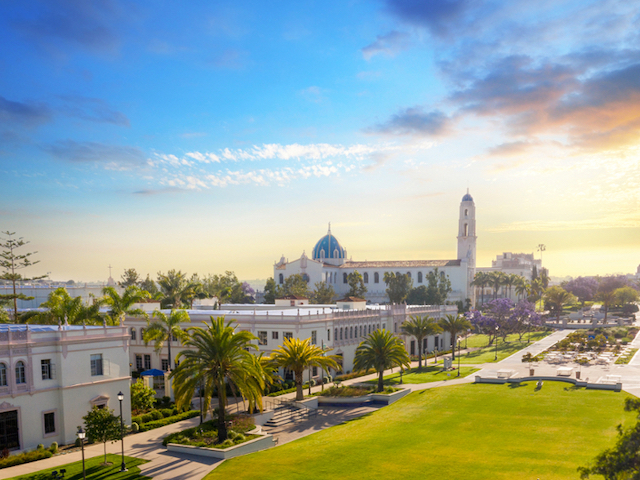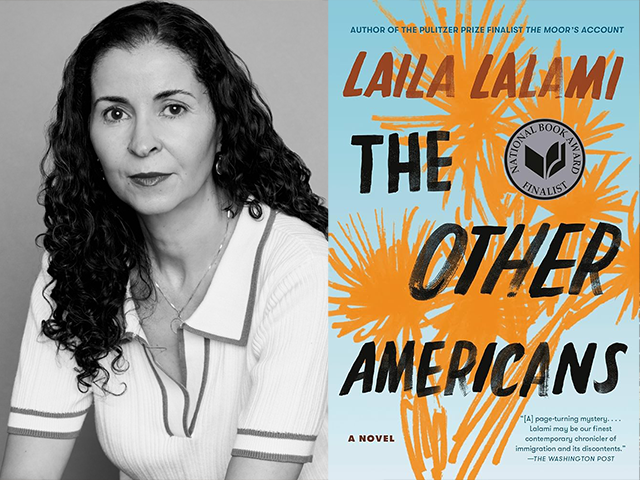USD Professor of Theology and Religious Studies Explores How Migration Affects Generational Religious Stories

When Professor Jacqueline Hidalgo was 12, her family moved to Kansas City, where evangelical Christians seemed to outnumber followers of other religions. The contrast with her family’s Catholic beliefs sparked a curiosity in Dr. Hidalgo about the relationships between religion, race, ethnicity and the differences in the religious stories passed down through generations.
“We share some of the same [religious] texts, but it felt like the stories from those texts and how they mattered in my house were different from the context dominated by white Evangelicals,” says Hidalgo, who comes to the USD College of Arts and Sciences, as part of the Borders and Social Justice cluster, from Williams College. “At the college level, I had the opportunity to study the plurality and diversity of [religious] traditions, which helped me to start to name the questions I had as a child.”
Hildalgo is one of six new faculty members hired as part of the university’s collaborative hiring strategy that focuses on bringing new faculty from various disciplines under thematic areas to join the College of Arts and Sciences community. This hiring initiative coincides with the USD Horizon Project, launched in 2021, that reaffirmed USD’s commitment and responsibility to diversity, equity and inclusion as well as academic excellence.
Her interest in how various communities engage scriptures, especially Latina/o/x communities, unfolds in her Introduction to Biblical Studies course, a contextual exploration of the Bible as seen through a historical lens and scholarly interpretations. She leads students through an investigation of the Bible as a document written by migrants and developed as a consequence of migration, a topic she is expanding on in a forthcoming book project.
“The project looks at the Bible’s formation—the text and range of engagements with it as a witness to how much of human life has been shaped by migration and how our most fundamental questions and relationships in the world are produced by our experience with migration,” she says.
Hidalgo examined urban displacement as chronicled in sacred texts in her monograph “Revelation in Aztlán: Scriptures, Utopias and the Chicano Movement” (Palgrave MacMillan, 2016) and a monograph, “Latina/o/x Studies and Biblical Studies” (Brill Research Perspectives in Biblical Interpretation, 2020). She also co-edited “Latinxs, the Bible and Migration” (Palgrave MacMillan, 2018) with Efrain Agosto.
As human displacement is increasingly driven by climate change and disproportionately affects Latina/o/x people, Hidalgo considers how some Latina/o/xs describe themselves as post-apocalyptic. She is conducting comparative research of Latina/o/x literature chronicling different forms of environmental crisis.
“I’m looking at the literature from the ‘60s to the recent past—about the Young Lords ‘Garbage Offensive,’ in New York City; writings by Mexican American and Puerto Rican writers in response to urban displacement and the AIDS pandemic; and Puerto Rican writers’ responses to Hurricane Maria,” she says. “Those are a few moments where you see the clearest and strongest articulation of the idea of living post-apocalyptically.”
Joining the University of San Diego presents a unique opportunity to collaborate with scholars in theology, ethnic studies and migration studies.
“USD has a long and storied history as an important locus for Latino and Latina theology,” she says. “It is an anchor institution at one of the busiest crossing points of the U.S./Mexico border, a crossroads for many different peoples from around the world. And in California, many people are facing facets of migration and climate change head-on.”
About the Cluster Themes
Climate Change and Environmental Justice: Given the array of disciplinary perspectives from which climate change and environmental justice may be approached, faculty in this theme shared interest and/or expertise to engage attendees with questions about the impact of the changing climate on humanity, the environment, public policy and the arts.
Technology and the Human Experience: Speakers shared aspects of the college’s promising program of research in the study of technology and the human experience that prepares students to design, create, regulate and implement accessible and bias-free technologies for a diverse world.
Borders and Social Justice: In the spirit of recognizing borders as social, political, cultural and physical constructs that act as artificial or natural boundaries within and beyond our imagination, the College of Arts and Sciences faculty shared expertise in challenging and contesting the concept of borders.
— Story by Leslie Ridgeway



